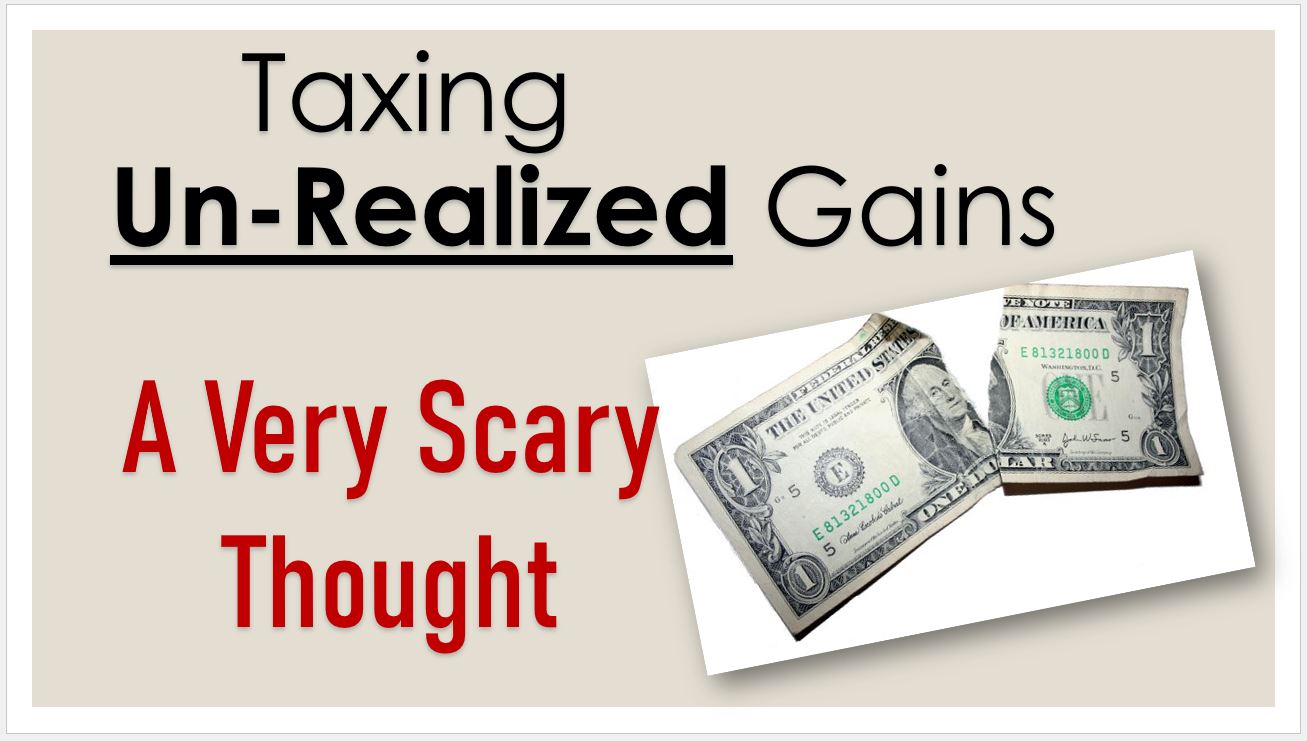If you invest in stocks, real estate, paintings, or any other investments and are fortunate enough to make a profit by selling your asset, the government gets up to 37% of your profit in the form of taxes at the end of the fiscal year. Your gain is called a Capital Gain, which is taxable, or at least a portion is taxable unless your income is relatively low.
The tax on Capital Gains may arguably be perceived as unfair by some since Big Brother does not directly compensate you when you sell at a loss. (There are ways to reduce your loss using the tax system, but it is not a clear-cut direct handout to those unlucky (or unwise) investors when they lose money.
Although some groups (the Conservatives and the Libertarians) are making efforts to reduce or eliminate the tax on Capital Gains and others (the Progressive Left) are trying to raise it to even higher values, we have tolerated them, and the general public does not lose sleep over these taxes.
Now, let us consider the scary thought: Taxes on Unrealized Capital Gains. Take a deep breath and clear your mind to understand this concept fully. (Note: It is not a law yet, but it is being discussed among policymakers).
The difference between realized and unrealized Capital Gains is simple. Realized Capital Gains are profits that one makes by selling a property. The gains are taxable, as stated earlier. If you do not sell your asset, there is no gain and no taxes to pay. Unrealized Capital Gains are profits you would have made if you sold your asset, but since you did not, you did not make any profits. Still, the government will require you to pay taxes anyway; even if you did not sell your appreciated asset, you still have to pay taxes on potential gains.
Imagine that you bought a second home for $100,000, and at the end of the year, the house value turns out to be $110,000. While filing your taxes, you have to pay Uncle Sam, let’s say, 15% of the 10,000, which is $1,500. Remember that you did not sell the house, and no one gave you a check for $110,000; you would still be obligated by law to pay a tax of $1,500 on this unrealized Capital Gain.
I don’t know about you, but to me, this is a scary law that my friends from the left are trying to impose on the general public with the pretext of preventing the rich from getting richer. This last phrase, ‘preventing the rich from getting richer,’ sounds good in the ears of certain people, especially young people (rich and poor) on the left, but if you think about it, is it a good idea for a society to structure itself in a way to prevent anyone from getting richer. This concept is a topic for another discussion.
What can ‘We the People’ do about this? We can research those ideas, inform ourselves, try to understand why the Conservatives and the Liberals have such opposite views about those issues and vote accordingly.
I do not have any special education that would allow me to write authoritatively about financial issues, and I may have misrepresented some of the concepts. I invite you to do your own research and, like I said before, vote accordingly.
Jean Garry Cantave
8/29/2024


